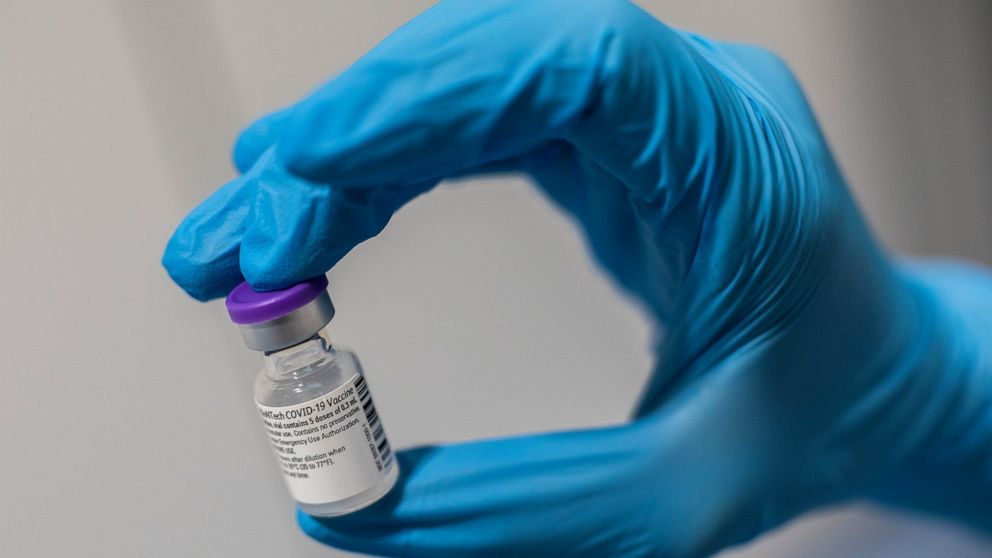EU seeks to boost credibility despite slow vaccine rollout
The European Union is seeking to prop up the credibility of its flagging corona vaccine program that has under pressure by anyone from World Health Organization and EU member states to the United Kingdom
BRUSSELS — The European Union on Monday sought to prop up the credibility of its flagging coronavirus vaccine program, which has been under pressure from the World Health Organization and EU member states to the United Kingdom.
Ten days of bad news about stalled deliveries from producers, a rusty rollout by member states was capped last weekend when the EU had to make an unlikely U-turn on plans to set up controls on the island of Ireland between the United Kingdom’s Northern Ireland and the EU’s Republic of Ireland to make sure vaccines wouldn’t be illegally transported to Britain.
Considering that keeping the border invisible to keep peace on the island was a key tenet of the Brexit EU-UK divorce agreement, that plan was aborted just before it became a firm decision, yet it left the European Commission, the EU’s executive arm, with plenty of diplomatic egg on its face.
Britain’s media had a feast, depicting the EU as untrustworthy even if the government kept a low profile on the issue.
“These are things which happen when you are working at full speed to deal with a developing situation,” European Commission spokesman Eric Mamer said.
“We have a saying only the pope is infallible. Important thing is that you recognize them early on — in this case so early that it was before the decision was finalized — and that you correct them,” he said.
Overall though, the European Commission stood by its plans to check on exports produced on its territory and make sure they were syphoned off somewhere else if the EU contract with producers stipulated that they should be used in the EU. The World Health Organization criticized the new EU export rules as “not helpful.”
The EU has been forced into such measures because the rollout of vaccines to its 27 member states is lagging way behind nations like Israel and the United Kingdom and also behind its own rollout plans. The EU as an institution has a massive stake in the success of the operation since it is a prime example to show its relevance on a continent where it is all too often the center of criticism.
Sandra Gallina, the general director in charge of health at the European Commission told legislators Monday that “we bought all the doses that were available in time (…). What we buy, is a dose delivered in a certain schedule in time. This is the whole issue, it is to have the companies delivering by the time that they have committed to deliver.”
Despite the repeated setbacks, the EU remains confident member states can achieve the commission’s goal that 70% of the adult population across the bloc will be vaccinated by the end of the summer. Gallina said that bloc expects to have received 400 million doses by the end of June.
Still critics have said that the European Commission should have started clinching contracts much earlier. AstraZeneca, which is at the heart of a delivery dispute with the EU, said that Britain was in an advantageous position since it had negotiated a few months quicker than the EU.
There is general agreement that the EU got good prices the member states could never have gotten and that liberal support for the vaccines companies that reached 2.7 billion euros helped speed up research and increase production capacity.
But speed has been the EU’s Achilles’ Heel. Countries like Austria have derided the more unwieldy approval process and Italy has even threatened court action against producers when deliveries started flagging. It is no different in the EU’s biggest member state.
Chancellor Angela Merkel and German state governors were planning to talk Monday with representatives of the pharmaceutical industry on ways to beef up the country’s sluggish vaccination campaign.
By Sunday, some 1.93 million people had received their first dose in Germany, a nation of 83 million, and 532,000 had received a second dose In comparison, Britain, a country of 67 million, has given nearly 9 million people a first vaccine shot.
The EU is now centering on the positive news. AstraZeneca, which initially said it would only deliver 31 million of a promised first batch of 80 million doses, now agrees to supply 9 million additional doses of its vaccine to the EU during the first quarter — bringing the total to half what the company originally aimed for.
Pfizer, which developed the first widely tested and approved coronavirus vaccine together with German firm BioNTech, has said it expects to increase global production this year from 1.3 million doses to 2 billion doses. BioNTech said Monday that up to 75 million of those additional doses will be delivered to the EU in the second quarter.
The German government has pledged to offer everyone vaccine by late September. In addition to frustration with manufacturers, fingers have been pointed at the EU itself, which ordered the vaccines; Germany’s federal government, which distributes them to state authorities; and state governments, which are in charge of the actual vaccinations.
———
Raf Casert reported from Brussels. Geir Moulson in Berlin, and Samuel Petrequin in Brussels, contributed to this report.
————
Follow AP coverage of the virus outbreak at:
https://apnews.com/hub/coronavirus-pandemic
https://apnews.com/hub/coronavirus-vaccine
https://apnews.com/UnderstandingtheOutbreak
![]()


